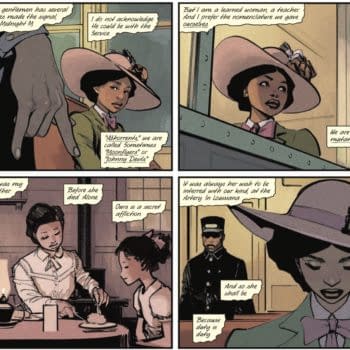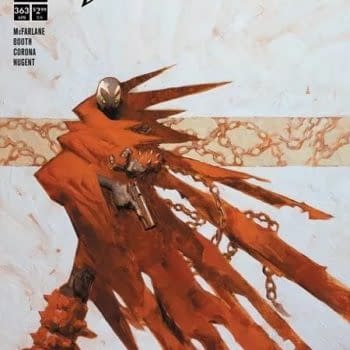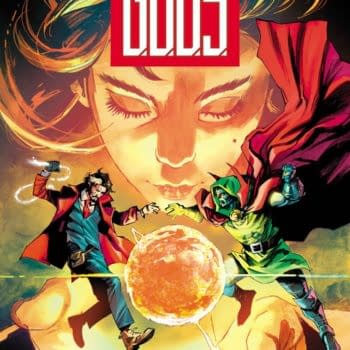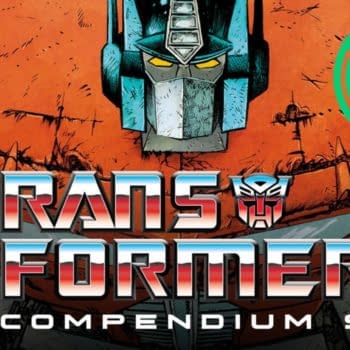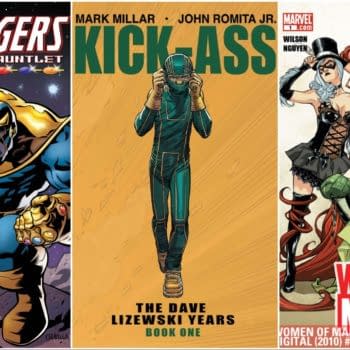Posted in: Comics | Tagged: Comics, entertainment, Justin Jordan, spread
Why Do Comic Creators Publish Comics When? It's All About The Cash Flow

The next trade of Spread comes out Nov 25 (just in times for Thanksgiving so you're….uh….welcome). The next trade of Strode comes out in, probably, June 2016.
As I've mentioned before, Image accruals happen in March and September, covering July – Dec and Jan to Jun, respectively.
You'll notice (especially since I am about to point it out to you) that both of these trades fall towards the end of that particular accruals period. This matters.
Now, hopefully, both of those will be in the black from initial orders. But if they aren't, their positioning in the accruals schedule matters.
Since they've only got one to two months of sales in that accruals period, the timeline in which we can get paid for those books is variably based on how fast they sell.
If they pay for their print run in the outset (my books mostly have paid for the print run in initial orders – Spread is an exception, because it had a larger print run. I don't actually know if Image has changed their standard print run or why it was bigger) then we
ll make a little money from those on the next accruals period.
If they don't, then we make money the one after that. Hopefully, more money.
Likewise, the actual numbers of both Strodes at Diamond are getting pretty low, and are going to need an additional printing pretty soon (presumably – they sell steadily, so I assume Image will keep them in print) and that again needs to be paid for.
And that will probably happen between now and the next Strode trade. The release of a new mini and a trade has bumped the sales of the old stuff, so it's reasonable to assume those things will come in.
So why I am telling you this?
Well, it's a cash flow issue, and I'm using myself as an example. I know how much I make per trade. What is a lot more squishy is WHEN I'll make that.
Now, I keep a cushion of money so that I'm not dependent on those checks – basically, I'm evening out my cash flow by keeping a buffer between my bills and my income. Which, if you can do it, I highly recommend.
But I have some projects I want to do that I'd like to be able to do advances on for the art team, so that we can bank a lot of issues before we solicit*.
So I need to have some sort of reasonable idea not only how much money I will have coming in, but also when. So considering when a book is published in the accruals cycle matters.
Likewise, for the aforementioned book, I'm looking at when we can do the pitch, so I can look at when we could conceivably do the book, so I can also keep in mind said accruals cycle.
Which right now would need to be soon, because the ideal would be to put the book out in July with a trade in December. Which actually ISN'T ideal for trade stuff, but would be better for singles cashflow because…..you know what, this is tangent, but it does illustrate the relative complexity of running a business as, you know, a business.
But my larger point is this: one of the things you have to consider is not just how much you'll get paid but when. Since last time someone thought I was bitching about money let me state: THIS IS A GENERAL CONCEPT
If you're not fortunate enough to have a cash buffer or some flexible credit to smooth it out, it's entirely possible to make enough money over the course of, say, a year to live and still be f-cked a good half of the actual months.
This also relates back to the 9.99 post. If you're an artist and can only work on one book, you still have to eat. So it's awesome knowing you'll probably get a big fat check in, say, September, but you need to eat in February.
This doesn't just, incidentally, apply to accruals. Not all companies pay at the same pace. Some places are net 30 or net whenever we remember to pay, so you need to have some reasonable idea when you'll get paid.
*Same principle, actually, as why I have the cash buffer – I want some space between the work getting down and the work getting to the public so we can absorb any unexpected delays.






